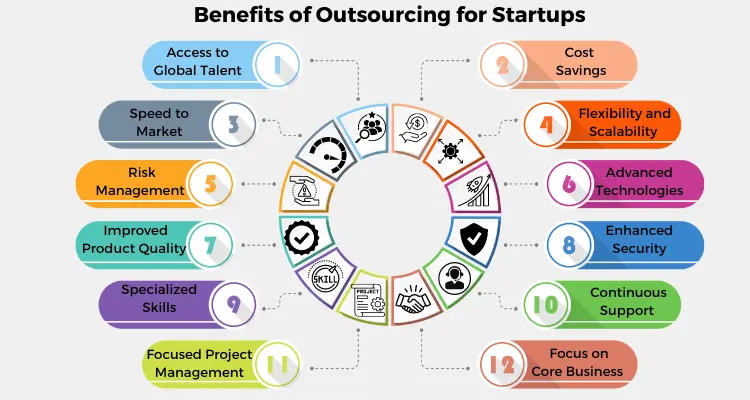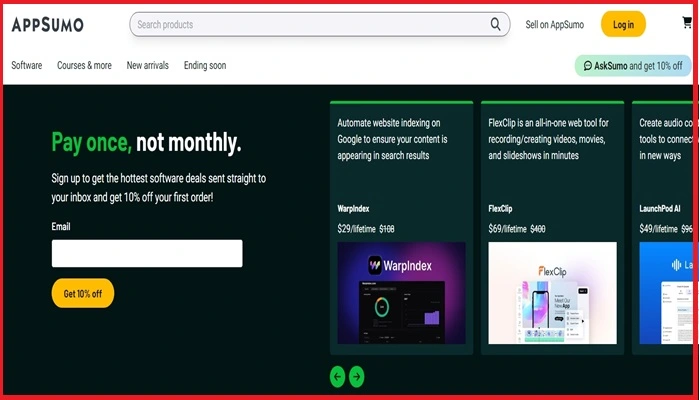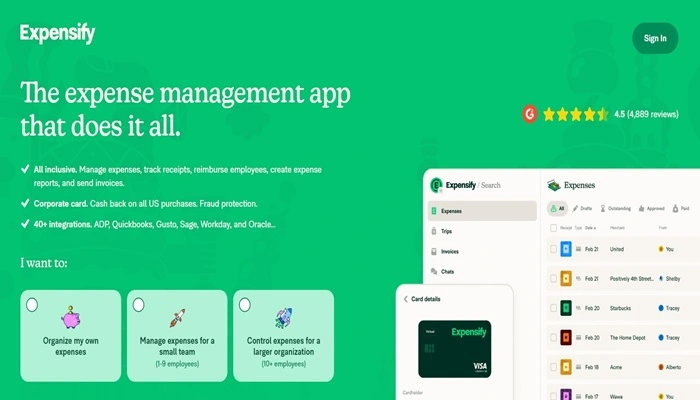- Home
- -Blog
Outsourcing Software Development for Startups: A Comprehensive Guide

- Updated on 13 aug 2024
- Shabir Ahmad
What Is Software Development Outsourcing?
Software development outsourcing is when a company hires an external team or service provider to handle its software projects rather than developing them in-house. This approach is widely used by startups and established businesses alike to leverage specialized skills, reduce costs, and accelerate development timelines.
Choosing the right software development partner is not just about outsourcing work; it's about creating a partnership that aligns with your startup's culture, goals, and vision for the future. This partnership can be the linchpin to unlocking growth, accessing new technologies and skills, and driving innovation at a pace that internal constraints might otherwise hinder.With the right partner, startups can navigate the complexities of software development, from initial concept to launch, while focusing on their core mission. By leveraging resource augmentation, the choice of partner becomes a reflection of your startup's values, ambitions, and commitment to quality, underscoring the importance of this decision in the broader narrative of your journey from concept to market leader.
Why Is Outsourcing Important for Startups?
For startups, outsourcing can be a game-changer. It allows them to:
- Access Expertise:Startups often lack the resources to hire full-time, specialized developers. Outsourcing provides access to a global talent pool, enabling startups to tap into the expertise they need without the long-term commitment of full-time hires. For companies expanding in Southeast Asia, partnering with a Malaysia Employer of Record (EOR) can further simplify hiring and compliance while accessing top local talent.
- Cost Efficiency: Building an in-house development team is expensive. By outsourcing, startups can save on recruitment, salaries, and overhead costs, allocating their limited budgets more effectively. Startups look for opportunities to outsource in Mexico, India, Poland and other tech hubs, due to the affordable rates and strong tech stack of local developers.
- Scalability and Flexibility: Startups often face fluctuating demands. Outsourcing allows them to scale their development efforts up or down as needed, ensuring they can adapt quickly to market changes.
- Focus on Core Business: By outsourcing software development, startups can focus on their core business activities, such as product innovation, marketing, and customer acquisition, without getting bogged down in the technical details of software development.
Contact-Us
Software Development Outsourcing Services
Types of Software Development Outsourcing
There are three primary models of software development outsourcing, each with its own set of advantages:
- Nearshoring: This involves outsourcing to neighboring countries that share similar time zones. For example, a U.S.-based startup might nearshore its software development to Mexico or Canada, leveraging the right startup tool to manage the process effectively.. The benefit here is that the proximity often leads to better communication and easier collaboration.
- Offshoring: Offshoring refers to outsourcing to distant countries, often in different time zones. A common example is a startup in the U.S. offshoring its development to India or Eastern Europe. The main advantage of offshoring is the significant cost savings, as labor costs in these regions are typically lower.
- Onshoring: Onshoring means outsourcing within the same country. For instance, a startup based in New York might outsource its development to a company in Texas. While onshoring offers benefits like cultural alignment and smoother communication, businesses often compare nearshoring vs offshoring to find more cost-effective solutions..
Benefits of Outsourcing for Startups

Outsourcing software development offers numerous advantages, helping startups grow and thrive in a competitive market. Here's a breakdown of the key benefits:
- Access to Global Talent
- Cost Savings
- Speed to Market
- Focus on Core Business and Innovation
- Flexibility and Scalability
- Risk Management
- Access to Advanced Technologies
- Improved Product Quality
- Enhanced Security
- Access to Specialized Skills
- Continuous Support and Maintenance
- Focused Project Managem ent
Startups can tap into a global network of skilled developers and IT professionals, ensuring they find the right expertise for their projects, regardless of location.This is where software development outsourcing proves most valuable, offering the flexibility to match talent with evolving product needs. Countries like India, Ukraine, and Poland have become popular outsourcing destinations due to their strong tech ecosystems and talent pools. By outsourcing, startups can benefit from the diverse skills and innovative approaches these professionals bring to the table.
Outsourcing significantly reduces the need for a large in-house development team, saving on recruitment, salaries, benefits, and infrastructure costs.Startups can outsource to regions where labor costs are lower, leading to substantial budget savings while still receiving high-quality work. Managing finances effectively, such as using blank invoice receipt templates, allows startups to allocate resources more efficiently and focus on other critical areas of their business. Professional paid media and digital agency like as AdParlor can take the pain away from you, providing streamlined solutions tailored to your needs. This financial flexibility allows startups to allocate resources more efficiently, investing in other critical areas of their business.
Outsourcing enables startups to quickly scale their development efforts by leveraging external teams. This accelerates the time to market for new products or features, giving startups a competitive edge. For instance, some startups have launched products faster by outsourcing development to experienced teams, allowing them to meet tight deadlines and capitalize on market opportunities.
By outsourcing technical tasks, startups can focus on their core business activities, such as product innovation, marketing, and customer engagement. Outsourcing frees up internal resources, enabling startups to be more agile and responsive to market changes. This focus on core strengths allows startups to drive growth and remain competitive in a rapidly evolving market.Efficient software development for startups can further enhance their product innovation and customer engagement.
Outsourcing offers startups the flexibility to scale development teams up or down based on project needs. This adaptability is crucial for handling fluctuating workloads or shifting project priorities without the burden of hiring or laying off employees. Startups can adjust their outsourcing arrangements as needed, ensuring they remain efficient and cost-effective.
Outsourcing helps mitigate risks associated with software development, such as project delays, technical challenges, and budget overruns. Experienced outsourcing partners bring established processes and best practices, reducing the likelihood of costly mistakes. This risk management advantage allows startups to navigate complex projects with greater confidence and success.
Outsourcing partners often bring expertise in the latest technologies, such as ai for ITSM, and development methodologies, which can be expensive and time-consuming to develop in-house. Startups can leverage cutting-edge technologies like AI, blockchain, or cloud computing through outsourcing, staying ahead of the curve without the overhead of building these capabilities internally.
Outsourcing to specialized teams can lead to higher-quality software products, as these teams bring focused expertise and experience. Outsourcing partners typically follow rigorous quality assurance practices, ensuring that the final product meets high standards. This focus on quality helps startups deliver reliable and user-friendly products that can compete effectively in the market.
Established outsourcing companies often have robust security measures in place to protect client data and intellectual property. For startups, outsourcing can enhance their cybersecurity posture without the need for significant in-house investment. By partnering with reputable outsourcing firms, startups can ensure their projects are secure and compliant with industry standards.
Startups can access specialized skills that may not be available locally, such as niche programming languages or specific industry knowledge. Outsourcing allows startups to experiment with new technologies or methodologies without committing to full-time hires. This access to specialized skills enables startups to innovate and stay competitive in their respective industries.
Outsourcing partners often provide ongoing support and maintenance services, ensuring that the software remains up-to-date and functional after deployment. Startups benefit from 24/7 support and regular updates, which help them maintain a competitive edge and address any issues that arise post-launch.
Outsourcing can bring in professional project management, ensuring that projects stay on track and within budget. Experienced project managers from outsourcing companies help streamline processes, improve communication, and ensure that project goals are met. This focused project management allows startups to achieve their objectives more efficiently and effectively. Efficient marketing project management plays a crucial role in reaching the target audience and maximizing brand exposure.
Red Stag Labs: Your Startup's Perfect Outsourcing Partner
Redstaglabs.com stands out as an ideal outsourcing partner for startups looking to optimize their software development efforts. With a strong focus on delivering tailored solutions, Redstaglabs brings extensive industry experience and a deep understanding of cutting-edge technologies.
The team is well-versed in handling projects across various sectors, ensuring that your startup's unique needs are met with precision and expertise. With a unified communication system in place, clear, responsive, and timely interactions are prioritized, ensuring seamless collaboration regardless of time zone differences.
Cultural alignment is another strength of Redstaglabs, as they prioritize understanding and integrating into your startup's work culture and values. They offer flexible pricing models to suit different budgets, with a transparent approach that eliminates the risk of hidden costs.
Their project management process is robust, employing the latest tools and methodologies to keep projects on track and within budget. Data security is also a cornerstone of their services, with stringent protocols in place to protect your intellectual property and sensitive information.
By starting with a pilot project, you can confidently evaluate their capabilities and ensure a smooth, long-term partnership that supports your startup's growth and success.
Challenges Startups Face and How Outsourcing Solves Them
The startup journey is thrilling but packed with hurdles, especially when it comes to building and maintaining a robust software development team. Let's dive into common challenges and how outsourcing provides solutions:
-
Competition with Big Companies for Talent: Startups often
find themselves in a David vs. Goliath scenario, competing with giants for
the same pool of skilled developers. Big companies lure talent with hefty
packages, making it tough for startups to attract the experts they need.
Outsourcing levels the playing field by giving startups access to global talent, bypassing the local competition entirely. This means startups can collaborate with top-notch engineers from around the world, who bring fresh perspectives and skills to the table, without the need to win a bidding war against the big players. - Overcoming the Learning Curve of Junior Developers: Junior developers can be eager and passionate, but their learning curve can slow down project momentum. Startups need to move fast and can't afford the delays associated with onboarding newcomers. Through outsourcing, startups can tap into a reservoir of experienced developers who can hit the ground running, ensuring projects progress swiftly and efficiently without the downtime associated with training.
- Preventing Staff Burnout with Scalable Teams: Startups often operate with lean teams, pushing the limits of what their employees can handle. This can lead to burnout, affecting morale and productivity. Outsourcing introduces scalability, allowing startups to augment their teams as needed without overburdening their core staff. This flexibility ensures that workloads are manageable, deadlines are realistic, and employees stay motivated and healthy.
- Navigating Investor Control in the Hiring Process: Investors play a crucial role in startups but can sometimes want to steer the hiring process, potentially complicating decisions. Outsourcing offers a strategic workaround, enabling startups to scale their development efforts based on expert recommendations and proven track records rather than navigating the intricate dynamics of investor preferences. This autonomy in decision-making ensures that the focus remains on what's best for the project, not just what's preferred by investors.
- Accelerating the Hiring Process for Immediate Project Commencement: The traditional hiring process is lengthy, often taking months to fill a single position. In the fast-paced startup world, this delay can be a significant setback. Outsourcing circumvents this entirely, offering immediate access to a pre-vetted talent pool ready to start when you are. This rapid deployment capability ensures that startups can move quickly from concept to development, maintaining momentum and staying ahead of the market curve.
- Managing Unexpected Tasks and Setting Realistic Goals: Startups are no strangers to the unexpected, with projects often taking new directions at the drop of a hat. Outsourcing partners are equipped to handle such pivots, bringing a wealth of experience and flexibility to the table. They can quickly allocate resources to address unforeseen tasks, helping startups adapt and evolve without missing a beat. Moreover, their experience across diverse projects means they're invaluable in setting realistic, achievable goals, ensuring startups don't overpromise and underdeliver.
Examples of successful IT outsourcing for startups
- Fab.com
- SeatGeek
- TransferWise (now Wise)
- AppSumo
- Expensify
- Opera

Fab.com, an innovative e-commerce platform, quickly rose to prominence by offering unique and design-focused products. As the platform gained popularity, the founders realized they needed to scale rapidly to meet growing demand. To manage this surge efficiently, they outsourced the development of their platform to an external team.
Outsourcing allowed Fab.com to quickly build the infrastructure necessary to support a rapidly expanding user base. This scalability was crucial in helping Fab.com reach a valuation of over $1 billion at its peak, making it one of the fastest-growing e-commerce sites during its time.

SeatGeek, a ticket search engine that aggregates ticket listings for live events, needed a robust and efficient search engine to handle large volumes of data and provide users with accurate, real-time ticket information. To achieve this, SeatGeek outsourced the development of its core search engine to an external team.
By outsourcing this critical component, SeatGeek was able to quickly develop a functional and reliable product. This allowed the company to focus on building partnerships and marketing, leading to a strong market presence and success in the competitive ticketing industry.

TransferWise, now rebranded as Wise, revolutionized the fintech industry by offering a cost-effective way to transfer money internationally. To scale its platform efficiently and manage the complexities of international transactions, TransferWise outsourced part of its software development.
Outsourcing enabled TransferWise to accelerate its development process, allowing the company to expand its services rapidly. This strategic move contributed significantly to its growth, making it one of Europe;s most successful fintech startups with a strong global presence.

AppSumo, a daily deals website specializing in digital products and software, was founded with the goal of helping entrepreneurs access affordable tools. To launch quickly and start generating revenue, the founders outsourced the initial development of the platform to an external team.
This decision allowed AppSumo to focus on building its customer base and forming key partnerships, which were critical to the platform's early success. Today, AppSumo is a well-known resource for entrepreneurs, offering a wide range of deals on software and digital tools.

Expensify, a company that offers expense management software, needed to bring its product to market quickly to capitalize on growing demand for streamlined financial tools. To speed up the development process, Expensify outsourced part of its software development.
Outsourcing enabled Expensify to launch its product faster, gaining a foothold in the market before competitors could catch up. This early entry was crucial in establishing Expensify as a leading player in the expense management industry, with a large and loyal customer base.

Opera, a web browser known for its speed and innovative features, needed to continually innovate to stay competitive in the browser market. To achieve this, Opera outsourced significant portions of its development to teams in various countries, allowing it to harness a diverse range of skills and expertise.
By leveraging global talent, Opera was able to maintain its competitive edge in a crowded market. The browser continues to be a popular choice for users worldwide, known for its unique features and consistent performance improvements.
Key Takeaways:
- Focus on Core Strengths: Outsourcing allows startups to concentrate on their main value proposition while experts handle the rest.
- Global Talent Access: The world is full of incredible talent. Outsourcing breaks down geographical barriers, giving startups access to the best minds.
- Scalability and Flexibility: Startups need to be agile. Outsourcing provides the flexibility to scale up or down as needed, without the overhead of full-time hires.
- Speed to Market: Getting your product to users quickly is crucial, outsourcing can significantly reduce development time.
Outsourcing Tips for Startup Success
- Knowing What to Outsource and What to Keep In-House: It's crucial to identify which tasks are core to your business and should be kept in-house and which can be outsourced. Core activities that define your company's unique value should typically remain under your direct control.
- Ensuring Seamless Onboarding and Starting with Smaller Projects: When you bring on an outsourced team, treat the onboarding process as you would with new in-house employees. Provide them with a comprehensive understanding of your company's culture, goals, and expectations. It's often wise to start with smaller projects to build trust and ensure alignment in working styles.
- The Critical Role of Project Management and Encouraging Feedback Exchange: Effective project management is the backbone of successful outsourcing. It ensures that projects stay on track, within budget, and aligned with your startup's goals. Use project management tools, like asana including Asana competitors, and establish clear communication channels to keep everyone on the same page. Additionally, encourage a culture of open feedback. This two-way exchange of ideas and constructive criticism can lead to improvements in work processes and the final product. It also helps the outsourced team feel more integrated and valued, fostering a stronger, more productive working relationship.
Conclusion: Navigating the Journey of Choosing the Right Outsourcing Partner
Choosing the right outsourcing partner is not just a task; it's a journey towards finding a collaborator who can bring your startup's vision to life. There are many popular gig platforms such as Toptal, but it's definitely worth exploring Toptal competitors. This decision can significantly influence the trajectory of your startup, impacting everything from product quality to market speed. It's about more than just cost-saving; it's about enriching your project with global talent, innovation, and flexibility that an in-house team alone might not provide.
FAQ's
- Why should startups outsource software development projects?
- Is outsourcing software development a good idea?
- Is outsourcing good or bad for startups?
- How do you successfully outsource software development?
- Is it better to outsource app development?
- What are the risks of outsourcing software?
- How much does it cost to outsource software development?
- What is the primary business reason for outsourcing a software development project?
- Why could outsourcing be beneficial to a project?
Outsourcing allows startups to access global talent, reduce costs, and speed up time to market. It enables startups to focus on their core business activities while experts handle the technical aspects.
Yes, outsourcing can be a great idea for startups, especially those with limited resources. It provides access to specialized skills, flexibility in scaling teams, and can be more cost-effective than building an in-house team.
Outsourcing is generally good for startups as it offers cost savings, flexibility, and access to expertise. However, it can have downsides if not managed properly, such as potential communication challenges or risks related to data security.
Successful outsourcing requires clear communication, choosing the right partner with relevant experience, setting clear goals, and maintaining regular oversight of the project. Starting with a small pilot project can help evaluate the partnership.
Outsourcing app development can be advantageous for startups needing specialized skills and quicker development times without the overhead of a full-time team. It allows startups to focus on other critical business areas.
Risks include potential communication barriers, loss of control over the project, data security concerns, and dependency on the outsourcing partner. Choosing a reliable partner and clear agreements can mitigate these risks.
The cost varies widely depending on the project scope, complexity, and location of the outsourcing partner. It can range from a few thousand dollars for simple projects to hundreds of thousands for more complex software.
The primary reason is cost efficiency. Outsourcing allows startups to reduce development costs while accessing specialized skills and expertise, leading to faster time to market.
Outsourcing can bring in specialized expertise, reduce time to market, and provide flexibility in scaling development teams. It allows startups to focus on their core competencies while leaving technical challenges to external experts.



